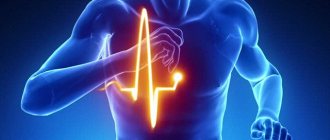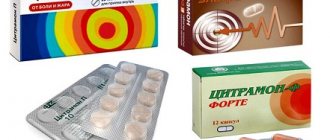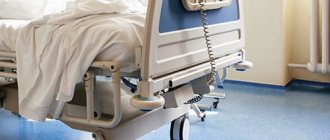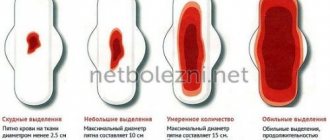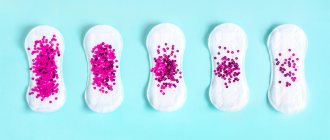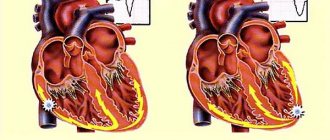Heart pain during and before menstruation is considered one of the signs of premenstrual syndrome. It appears much less frequently than pain in the abdomen, chest, nausea, and intestinal upset. Moreover, an alarming symptom may not appear every time, but periodically. In most cases, discomfort in the sternum has nothing to do with heart disease and goes away after menstruation. What is the cause of heart pain before menstruation?
Manifestations of premenstrual syndrome
Almost all women are familiar with the feeling of premenstrual syndrome. But it manifests itself differently in everyone. In general, experts identify more than 100 symptoms. Hormonal changes in a woman’s body before menstruation entail a lot of consequences. Literally every internal organ, all vital systems find themselves in a stressful situation. The nervous system, the vegetative-vascular system, is under particular stress. The heart is an organ that finds itself at the very center of internal changes. In addition, pain in the left hypochondrium may indicate neuralgia, which has nothing to do with heart disease.
What to do if you have chest discomfort during menstrual periods
The occurrence of intense pain in the heart area during any phase of the menstrual cycle is an alarming symptom that requires emergency medical attention.
If cardiac pain appears in the first phase of the menstrual cycle (the first 15 days after menstruation), the development of coronary heart disease is excluded. The most common provoking factor for angina pectoris (one of the forms of coronary artery disease) is physical activity. Cardialgia against the background of hormonal changes is caused by:
- emotional turmoil;
- acute stress factors;
- smoking;
- drinking alcohol.
The most effective method of preventing pain is modifying lifestyle and preventing situations that cause cardialgia.
In order to eliminate the adverse effects of nervous system lability and spasm of the smooth muscles of the coronary vessels, the following is used:
- nitrates (“Nitroglycerin”, “Isoket”, “Nitrosorbide”) - drugs that stop an attack of angina, restore adequate blood flow through the coronary vessels to the muscle fibers of the heart;
- calcium channel blockers (“Amlodipine”) – used to eliminate vasospasm;
- sedatives (“Valerian extract”, “Glitsed”, “Novo-Passit”) - used for stress etiology of pain syndrome;
- cardioprotective drugs (“Mildronat”) – substances that increase the resistance of the myocardium to oxygen deficiency.
In addition, regular repetition of episodes of heart pain before the upcoming menstruation requires a detailed examination by a cardiologist in order to exclude organic pathology. Laboratory diagnostics of the concentration of sex hormones in different phases of the menstrual cycle is also recommended.
Causes of heart pain before menstruation
When the question was asked on the forum why the heart hurts before and during menstruation, most women left the answer: “This is the first time I’ve heard about this!” Although, in general, there is nothing strange about this.
- All diseases come from nerves! When your heart hurts, it is recommended to be less nervous and avoid stress. Before menstruation, the nervous system is especially vulnerable. Unreasonable tears, mood swings, excessive impressionability, insomnia, fears. All this affects the functioning of the heart. Particularly impressionable females experience aching or stabbing pain. The first reason why an organ can hurt.
- Before menstruation, the uterus prepares to shed the endometrial layer. Spasms are present in the lower half of the abdomen and are transmitted to neighboring organs. Vessels tend to expand, then sharply narrow. Lack of adequate oxygen supply to the heart leads to unpleasant sensations. Changes in the state of the vegetative-vascular system are the second cause of heart pain before menstruation.
- During menstruation, the heart hurts due to iron deficiency and decreased hemoglobin. The situation is especially typical with severe bleeding. But it can occur after the 3rd day of menstruation, when menstruation is heavier than other days. Low hemoglobin is dangerous due to oxygen starvation. Internal organs are not able to fully supply oxygen to the heart. As a result, it starts to hurt. When menstruation ends, strength is restored and the pain goes away. Hemoglobin can decrease already on the eve of menstruation. Therefore, this is the third cause of heart pain before and during menstruation.
- Low blood pressure on the eve of menstruation occurs in every 3 women. Dizziness, weakness, rapid heartbeat, increased fatigue, headache, nausea, pain in the heart area. These are all signs of hypertension. The fourth reason why the heart hurts.
External factors that make a woman worry, worry, and nervous contribute to the appearance of pain. If during the previous month there were unpleasant events. On the eve of your period, your heart will begin to ache. If pain appears every time, does not go away after the end of menstruation, or makes itself felt in the period between menstruation, it is recommended to see a cardiologist or gynecologist.
The connection between heart pain and the menstrual cycle
The menstrual cycle of the female body is characterized by periodic changes in tissues and organ systems caused by a gradual increase and decrease in the concentration of sex hormones. There are two phases of the cycle:
- follicular (from the first day of menstruation to ovulation, 14-15 days), which is characterized by a minimal amount of estrogen and progesterone in the blood. At this time, the endometrium of the uterus grows for future implantation of the egg. In the middle of the follicular phase, estrogen levels increase, which reaches a maximum at the time of ovulation;
- luteal (from the moment of ovulation to the first day of menstruation) - there is an increased synthesis of progesterone by the corpus luteum in the ovaries.
For more information about the cycle, its periods and their features, see the video below.
The occurrence of cardialgia (pain in the heart) during menstruation or in the first days after is associated with low concentrations of estrogen and progesterone. Estrogens provide a vasoprotective (“vessel protection”) function against the formation of atherosclerotic plaques, which provoke coronary heart disease (CHD).
The hormonal effect, aimed at preventing spasm of vascular muscles, is realized through the blockade of channels that transport calcium ions into the muscle fibers for adequate contraction.
In addition, the presence of special estrogen receptors in the heart has been proven, which determine the activity of nitrogen synthase. The latter is an enzyme that ensures the release of nitric oxide, which dilates the pathologically narrowed vessels of the organ. Low concentrations of these substances contribute to the occurrence of myocardial ischemia in stressful situations and the development of cardialgia. Characteristics of heart pain after menstruation:
- long, more than 10 minutes;
- compressive nature;
- accompanied by a panic attack with lack of air;
- rapid heartbeat (rate more than 90 beats per minute), a feeling of interruptions in the functioning of the heart.
The occurrence of heart pain in the second phase of the menstrual cycle is a rarer occurrence, since a sufficient amount of estradiol and estriol provides a cardioprotective effect.
How to relieve a symptom
In the absence of organ diseases, you can cope with painful sensations on your own. Physical exercise, proper breathing, and sedatives will help with this. To remove pain, it is necessary to eliminate the cause. In this case, it is only possible to reduce the negative manifestations of PMS.
- When the heart hurts, there is dizziness and weakness. In some cases, all this ends in loss of consciousness. During the period of unpleasant sensations in the left side of the hypochondrium, it is recommended to drink Valocordin, Validol. The drugs have a sedative effect and help relax blood vessels. Better blood circulation.
- As soon as an organ begins to hurt in attacks, you need to sit or lie down, relax, and breathe deeply. Deep but calm breathing normalizes the functioning of the organ, and the heart will stop hurting.
- Shortly before the start of menstruation, it is necessary to introduce iron-rich foods into the diet. Then the risk of a decrease in hemoglobin will decrease. The most affordable products are apples, liver, meat, buckwheat porridge.
- Raise blood pressure with green tea, chocolate, and red wine. You can take a tablet of citramon, citropak, or any drug containing caffeine. As well as a complex of vitamins containing iron.
- If your heart hurts, you should take sedatives in the form of tinctures of motherwort, valerian, and glod. You can make a “cocktail” of these drugs. Mix 10 drops of each, wash down with water, tea, juice. Tea made from chamomile, lemon balm, and mint has a beneficial effect on the nervous system.
It is imperative to adhere to a sleep and rest schedule. Go for walks and light jogging. Spend more time outdoors. Then your heart will stop hurting and other manifestations of premenstrual syndrome will decrease.
Why does my heart hurt during menstruation?
A sharp change in the ratio of estrogen and progesterone provokes irritability, mood swings and tearfulness. An increase in the number of emotional stresses in the presence of cardiac pathologies can result in an attack of angina pectoris. But even in the absence of heart disease, deterioration in the regulation of the functions of peripheral nerves and overexcitation of the central nervous system leads to the appearance of aching pain.
Excess estrogen, which is necessary for endometrial rejection, also explains water retention in tissues. According to statistics, swelling is observed in 50% of women. Water retention is most common for those who have high levels of androgens, estrogens and the “happiness hormone” - serotonin, a few days before menstrual bleeding.
Pain in the heart manifests itself not only due to swelling of the internal organs, but also due to engorgement of the mammary glands. Their expanding lobes compress the nodes and nerves in the sternum, which provokes pain.
Fluid retention is enhanced by the active production of the hormone prolactin. In addition to edema, an excess of this substance explains increased blood pressure and tachycardia. Prolactin prolongs the excitation phase in myocardial cells during heart contraction, which leads to acute pain that appears cyclically.
Painful sensations can also occur in the absence of excess hormone production. They are caused by prostaglandins - biologically active substances of lipid origin. They are released by dying cells and create a “beacon” for the immune system. Prostaglandins released during endometrial rejection cause pain in various human organs and systems: spleen, gastrointestinal tract, heart, musculoskeletal system.
Pain in the sternum is most typical for the crisis form of PMS. With her, oh, manifested by changes in pressure, fear of death, abdominal cramps, chills, rapid pulse and sinking heart. The end of the attack is accompanied by the urge to urinate.
With the onset of menstruation, most of the unpleasant effects disappear, but with intense manifestations of 5-12 symptoms at once, heart pain continues during menstruation.
Treatment of pain during menstruation
Pain is considered severe if it interferes with your daily activities, and such pain affects about 10% of women and is called dysmenorrhea. Remember, this is a serious symptom that is common to many conditions, including endometriosis or fibrosis, which means consulting a doctor is required.
Below are some ways to relieve period pain:
Regular physical activity and generally staying physically fit can reduce period pain. Pain relievers that reduce the effects of prostaglandins may help with menstrual pain. These painkillers include non-steroidal anti-inflammatory drugs (NSAIDs for short). Relaxation techniques, bed rest and simple measures such as applying heat to the lower abdomen (in the form of a warm water bottle or heating pad) can be very effective.

